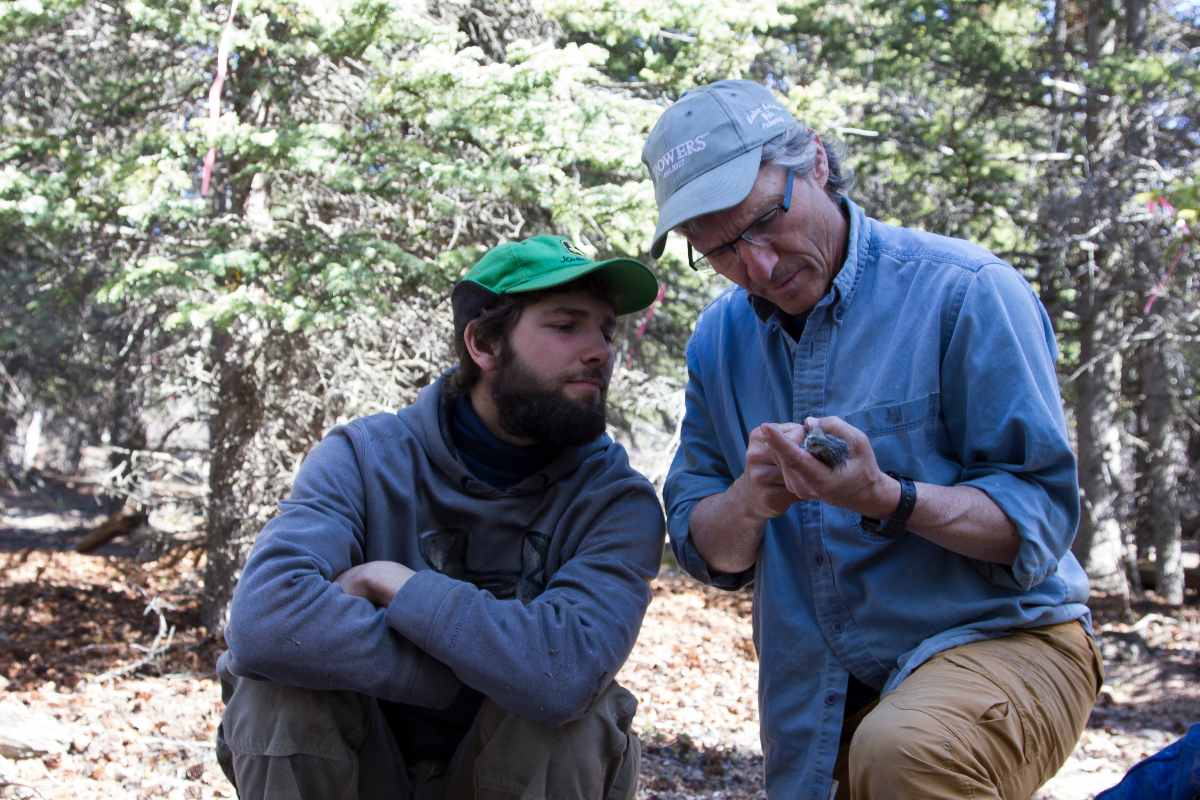
Stan Boutin (right) with graduate student Jacob Seguin (left) in the Yukon, collecting snowshoe hare data as part of the Kluane Lake Project. Image courtesy of Stan Boutin.
For many scientists, the summer months are a key data collection time. But this year, the COVID-19 pandemic means that field work usually conducted at this time is no longer possible. And for graduate students, missing this season of data collection would throw a major wrench into their research projects—if not derailing them completely.
A group of scientists, including researchers at the University of Alberta, are leading the way to help these students continue their work and complete their programs despite the pandemic. The key? Sharing data, explained Stan Boutin, professor in the Department of Biological Sciences in the Faculty of Science.
“The Kluane Red Squirrel Project has collected ecological data on two major projects in the Yukon for nearly 50 years,” explained Boutin. “We can offer these data to students who are scrambling to develop contingency plans. Sharing some of the historical datasets could help to alleviate a bit of the stress that graduate students are feeling right now, by allowing them to add these data to their thesis.”
The Kluane Red Squirrel Project has nearly half a century of data on two key projects, including an analysis of the red squirrel population in the region as well as a wider environmental study on the cycles of two other inhabitants, including the lynx and snowshoe hare. This information is a veritable gold mine for scientists—especially for students whose data collection has been cut short.
“For example, students working somewhere else in Canada might be curious about the reproductive success of animals during a changing climate,” explained Boutin. “They’ve done all the background research and written a proposal but can’t get the data they need. These students could approach us, explain their interest, and ask us for access to our data.”
A group of Boutin’s fellow researchers in the Canadian Society for Ecology and Evolution is encouraging their colleagues to do the same, though there are concerns and challenges to doing so.
“It is a big challenge, and I think all of us are scrambling and trying to grasp what this all means,” said Boutin. “You need to know the context in which the data was collected, and it takes some careful discussion because the historical knowledge isn’t always written down. But if students are willing to learn, we are more than willing to teach them. As senior researchers, I think we can look for ways to work together and to get over these hurdles.”
Principal investigators on the Kluane Red Squirrel Project include researchers from the University of Alberta, University of Guelph, McGill University, University of Michigan, and the University of Saskatchewan.
Learn how University of Alberta-led research is supporting global efforts against the COVID-19 pandemic on the University of Alberta COVID-19 research hub.
Students, faculty, and staff can stay up-to-date with the latest information on COVID-19 for the campus community online.